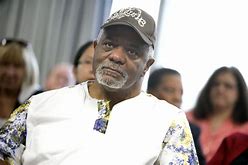
Being single isn’t what it once was.According to a new report from Pew Research Center, the share of U.S. adults aged 25 to 54 who are neither married nor living with a partner has risen sharply from 29% in 1990 to 38% in 2019. And for the first time, men are more likely than women to be unpartnered, reversing the pattern from 30 years ago.

What’s behind this trend? The report points to the decline in marriage as the main driver, as cohabitation has not increased enough to compensate for it.

The report also notes that the rise in unpartnered adults is not uniform across racial and ethnic groups, with Black adults having the highest share of never-married adults (59%), followed by Hispanic (40%), White (27%) and Asian (19%) adults.

But being single is not just a matter of personal choice. It also has implications for the economic and social well-being of individuals and society.

The report finds that unpartnered adults have lower earnings, employment, education and independence than partnered adults, and these gaps have widened since 1990.

Unpartnered men are especially worse off than unpartnered women, as they are more likely to live with their parents and less likely to support a family financially.

The report suggests that these gaps may have consequences for single men who want to find a partner in the future. In a 2017 Pew Research Center survey, 71% of U.S. adults said being able to support a family financially is very important for a man to be a good spouse or partner.

Similar shares of men and women said this. In contrast, 32% of adults – and just 25% of men – said this is very important for a woman to be a good spouse or partner.

This means that many single men may face difficulties in meeting the expectations of potential partners, especially as women have made significant gains in education and income over the past decades.

As the report states, “The growing gap in economic success between partnered and unpartnered adults may have consequences for single men who would like to eventually find a partner.”

Being single also affects the prospects of becoming a father and raising children. According to the National Fatherhood Initiative, a nonprofit organization that promotes responsible fatherhood, “While the rise in unpartnered men has broad societal consequences—namely, as the study points out, that unpartnered adults often have worse economic, social, and health outcomes than partnered adults—organizations that serve dads should brace themselves for the wave of expectant and first-time fathers that’s already arrived on their shores.”

The organization warns that many unpartnered men may lack the skills and resources to be involved and supportive fathers, which can have negative effects on their children’s development and well-being.

The organization also urges policymakers and service providers to address the needs and challenges of unpartnered fathers and help them build healthy relationships with their children and co-parents.

Being single is not necessarily a bad thing, as some people may prefer it or find happiness in other aspects of life. But for those who want to find love and start a family, being single may pose some obstacles and risks.

The rise in unpartnered men is a phenomenon that deserves more attention and action from researchers, policymakers and society at large.

